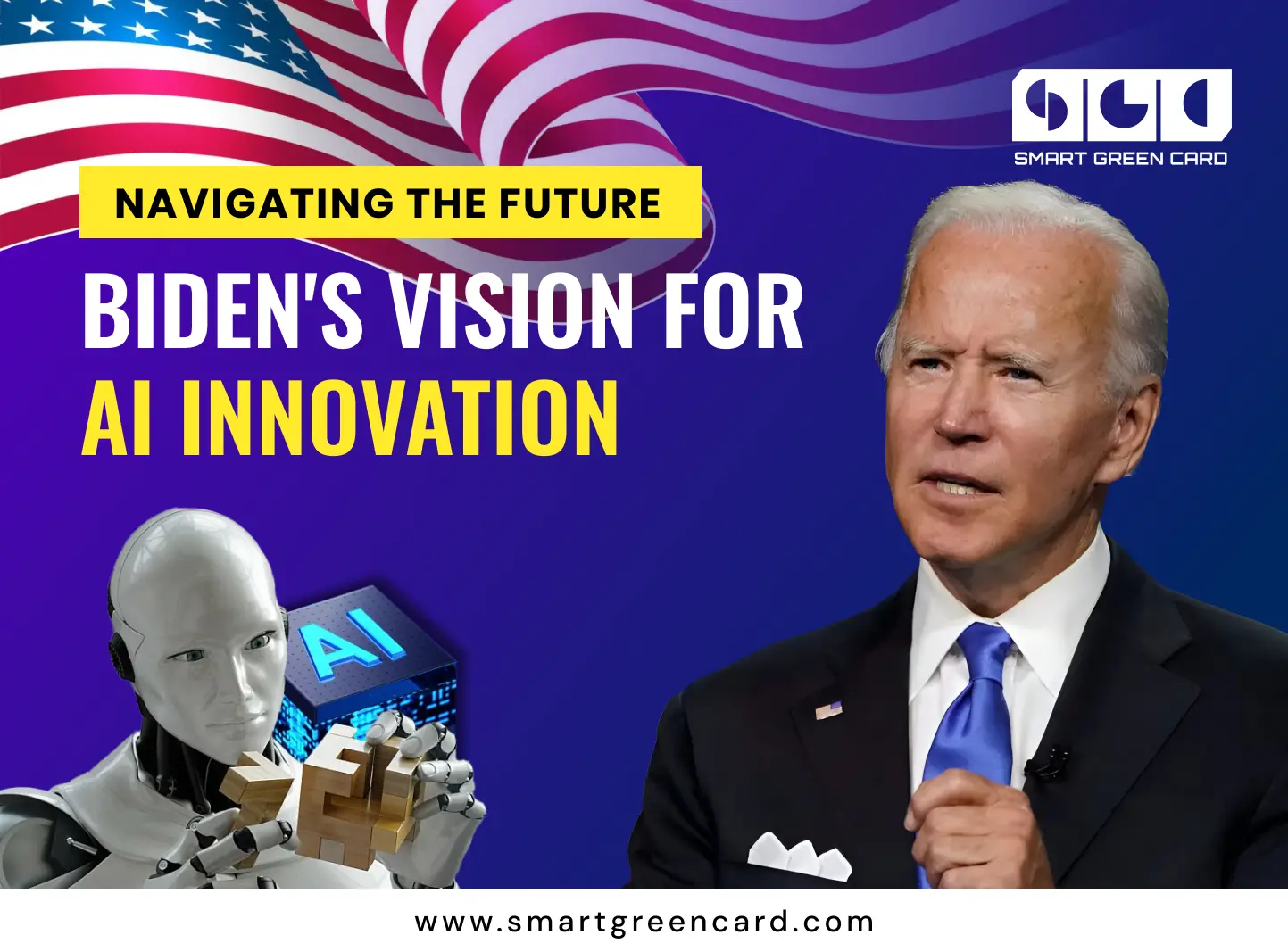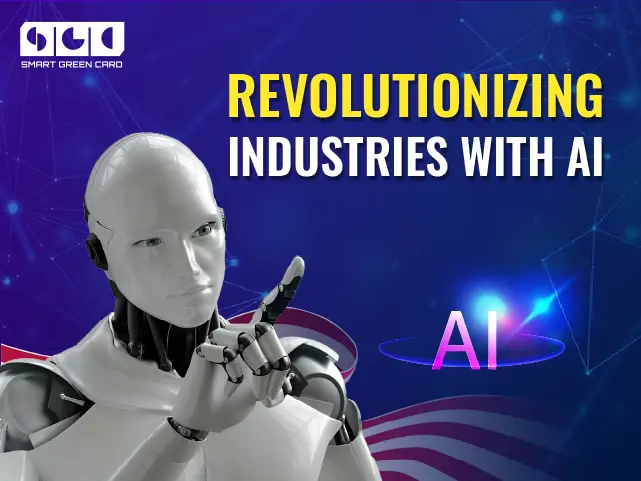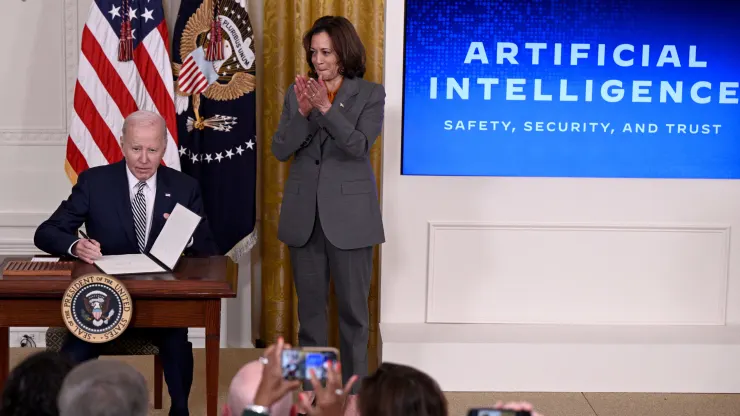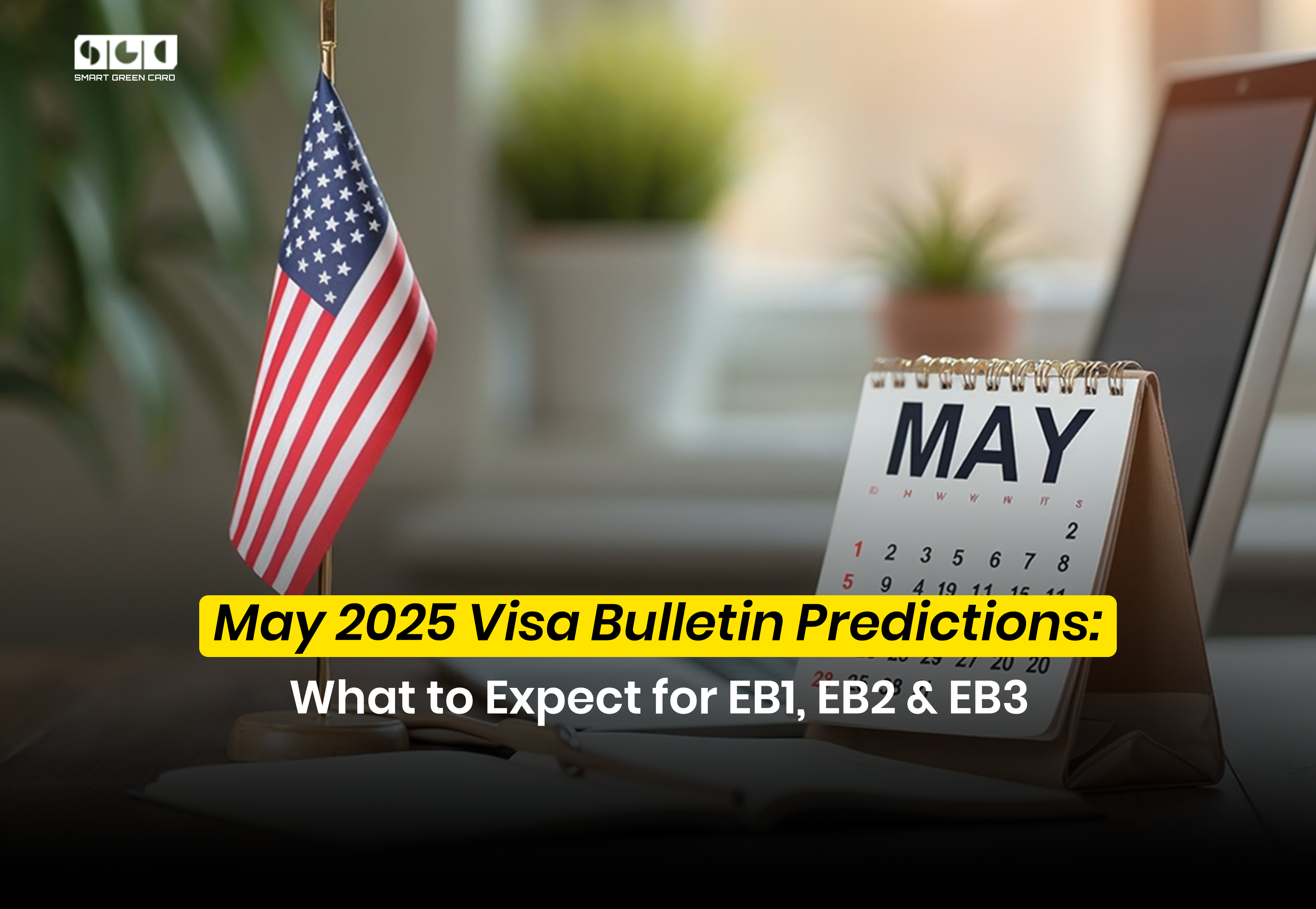Navigating the Future: Biden’s Vision for AI Innovation

As the global demand for AI expertise grows, the United States has become a magnet for talent, attracting professionals from around the world. President Joe Biden has taken a bold step forward by signing an AI Executive Order (EO) on the “Safe, Secure, and Trustworthy Development and Use of Artificial Intelligence”.
While the EO primarily focuses on regulating AI to safeguard national security and privacy, it holds a significant and transformative aspect that concerns AI professionals worldwide – streamlining and accelerating immigration pathways.
The Vision Behind the AI Executive Order

President Biden’s Executive Order aims to address the challenges and streamline immigration processes for AI professionals. The EO is not just about regulating AI; it’s about driving innovation and attracting global talent.
AI has the power to revolutionize industries. However, with this immense potential comes an array of challenges, including privacy concerns, security risks, and ethical considerations.
The AI Executive Order‘s primary objectives are to:
Balance Innovation and Security: President Biden’s AI Executive Order recognizes the incredible potential of AI while addressing its associated risks, including job displacement and potential privacy breaches. It aims to strike a balance by promoting collective bargaining and workforce training.
Attracting Global Talent: To maintain its leading position in AI innovation, the U.S. is keen on attracting and retaining top AI talent from around the world. This aligns with the nation’s ambition to foster a competitive and trustworthy AI ecosystem.
Fast-Tracking Immigration for AI Professionals
The United States has long been a hub for AI innovation, attracting the brightest minds globally. However, immigration processes, while designed to facilitate the entry of skilled workers, have often faced criticism for their complexity and lengthy processing times.
This has been a challenge for AI professionals looking to work, study, or conduct research in the U.S. The AI Executive Order seeks to streamline the immigration process for immigrants and non-immigrants with AI expertise.
Here’s a closer look at the implications:

Faster Visa Processing: The AI Executive Order seeks to expedite visa processing for individuals in AI-related fields, including visas like H1B, O-1, F1, and Green Cards. This acceleration is a welcome development for AI professionals, reducing processing times and increasing efficiency.
Priority for AI Workers: The criteria for EB1 and EB2 green cards, which are commonly used by highly skilled individuals, are expected to see adjustments that prioritize AI professionals. This means that AI experts may have a more favorable pathway to obtaining permanent residency.
The Impact on Indian IT Professionals
This EO is expected to have a significant impact on Indian IT professionals working in the United States since they are the most impacted by green card delays.
According to immigration experts, EO may not lead to additional green cards or country-wise benefits. However, it opens the door for potential reforms in EB1 and EB2 categories. They suggest that the U.S. Citizenship and Immigration Services (USCIS) could create a relaxed or separate category within EB1-B to allow people to work in the AI field.
The Broader Impact on AI and Privacy

The AI Executive Order urges Congress to pass bipartisan data privacy legislation, highlighting the importance of safeguarding individuals’ privacy in an AI-driven world. Furthermore, it seeks to address algorithmic discrimination and establish clear guidelines to prevent AI-induced discrimination in housing, federal benefits, and federal contracts.
Conclusion
As the United States works to streamline immigration processes for AI experts, the future is brighter than ever for those eager to make their mark in the AI landscape. The nation’s commitment to staying at the forefront of AI innovation is unwavering, and it welcomes talent from around the world to join in this exciting journey.
President Biden’s AI Executive Order is not just about regulating AI, it’s about shaping the future of AI innovation and attracting the best and brightest minds to contribute to that future. The AI Executive Order marks a significant step in that direction.
About Smart Green Card
Smart Green Card, founded by Saiman Shetty, is your pathway to immigration success. Drawing from his personal experiences, the platform provides valuable insights into the intricate process of securing an EB-1A Green Card. Offering expert advice, strategies, and support, Smart Green Card empowers individuals to navigate challenges and achieve their immigration goals.
Share this :
- SGC
- No Comments
Latest blog & Newsletters
May 2025 Visa Bulletin Predictions: What to Expect for EB1, EB2 & EB3
May 2025 Visa Bulletin Predictions: What to Expect for EB1, EB2 & EB3...
Smart Green Card: Expert Guidance for Your U.S. Visa & Green Card Journey
Smart Green Card: Expert Guidance for Your U.S. Visa & Green Card Journey...
H1B Lottery Results 2025: Everything You Need to Know
H1B Lottery Results 2025: Everything You Need to Know The H1B visa lottery...





